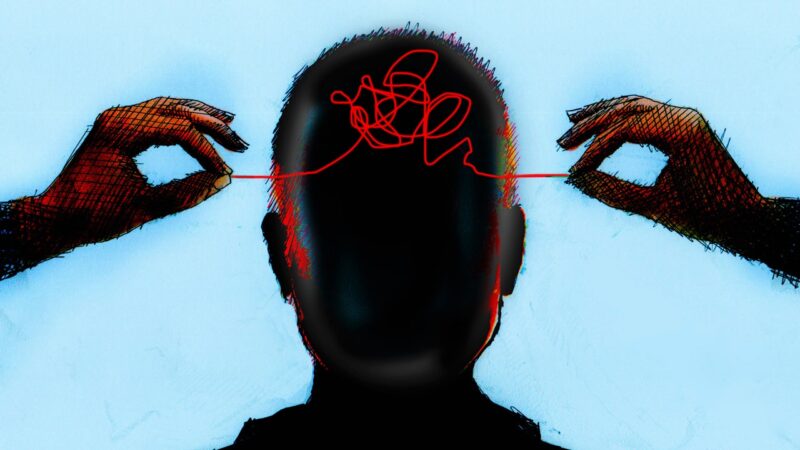Cognitive Behavioral Therapy (CBT) is a form of psychological treatment effective in addressing a range of mental health issues. It focuses on changing unhelpful cognitive distortions and behaviors, improving emotional regulation, and developing personal coping strategies.
This article aims to guide you on when to consider CBT and what to expect during the process. Whether you’re struggling with anxiety, depression, or other mental health concerns, understanding CBT can be your first step towards healing.
Signs That You Might Need CBT
You might need CBT if you’re experiencing persistent negative thoughts, overwhelming anxiety, mood swings, or difficulty in coping with daily stress. If your emotional challenges interfere with your ability to function, maintain relationships, or enjoy life, it’s a sign.
CBT can be particularly beneficial if you find yourself stuck in harmful behavioral patterns, like excessive worry, procrastination, or avoidance.
These patterns can manifest in various aspects of life, impacting work efficiency, social interactions, and personal growth. Cognitive Behavioral Therapy helps by breaking these cycles, offering strategies to manage thoughts and behaviors more effectively.
Remember, recognizing these signs is the first step towards seeking help. Early intervention can prevent these issues from escalating, improving your overall quality of life.
When to Consider CBT

Consider CBT if you face emotional or mental health challenges that don’t seem to improve over time. It’s particularly helpful for anxiety, depression, phobias, and stress-related issues. If traditional therapies haven’t worked for you, or if you prefer a more structured and active form of therapy, CBT might be the right choice.
Its structured nature is beneficial for those who need clear guidance and measurable goals. To learn even more please click here.
It’s also suitable if you’re looking for short-term treatment focused on developing practical coping skills. Cognitive Behavioral Therapy is effective in dealing with specific issues, like panic attacks or social anxiety, and offers tools that can be applied immediately in everyday situations.
The skills learned through CBT are not only helpful in addressing current problems but also in preventing future relapses, making it a sustainable option for long-term mental health.
The Role of a Professional Assessment
A trained therapist plays a crucial role in determining if CBT is right for you. During a professional assessment, the therapist will discuss your symptoms, history, and goals in depth. They evaluate if CBT’s focus on changing thought patterns and behaviors aligns with your needs.
This assessment also includes understanding your environment and personal relationships, as these factors can significantly impact your therapy. Remember, seeking expert advice is essential in ensuring the therapy you choose is effective for your unique situation.
A thorough assessment sets the stage for a tailored treatment plan.
Setting Realistic Expectations
CBT is not a quick fix but a journey towards better mental health. Realistic expectations include understanding that improvement requires effort and time. You’ll learn to identify and change harmful thought patterns, which is a gradual process.
The success of Cognitive Behavioral Therapy depends on your commitment and the complexity of your issues. Patience and perseverance are key, along with a willingness to confront and modify long-held beliefs and behaviors. Success in CBT also involves developing new, healthier ways of thinking and acting over time.
Choosing a CBT Therapist

When looking for a CBT therapist, check their credentials and experience in treating your specific issue. Consider their approach and whether it aligns with your preferences. It’s important to find a therapist whose methods and personality mesh well with your own.
A good rapport with your therapist is crucial, so don’t hesitate to have an initial consultation to gauge your comfort level.
Personal recommendations, professional directories, and healthcare providers can be good resources. Also, consider the therapist’s availability and location, as regular sessions are key.
The Initial Assessment Session
Your first CBT session involves getting to know your therapist and discussing your challenges. The therapist will ask about your history, symptoms, and what you hope to achieve through therapy.
This is also a time to establish trust and set the tone for future sessions. It’s a chance for you to ask questions and understand the therapy process. This session lays the foundation for your treatment plan, so be open and honest. The more information your therapist has, the better they can tailor your treatment.
Customized Treatment Plans
CBT is tailored to meet individual needs. Your therapist will develop a treatment plan based on your specific symptoms and goals. This plan might include different techniques and homework assignments.
Each session will build upon the last, adapting as needed to fit your progress and feedback. This personalized approach ensures that therapy addresses your unique challenges. Your therapist may also integrate other therapeutic approaches if they complement the CBT framework and support your treatment goals.
Active Participation

Active participation in CBT is crucial. You’re encouraged to engage in exercises during sessions and as homework. Active involvement includes practicing new skills, challenging negative thoughts, and applying what you learn in real-life situations.
Your therapist will guide you, but the real change happens through your efforts. Your commitment to actively participating in and outside of sessions significantly impacts the effectiveness of CBT. This includes completing homework, practicing techniques learned, and honestly evaluating your progress.
Common CBT Techniques
Common CBT techniques include journaling, which helps in identifying and understanding thought patterns. Cognitive restructuring involves challenging negative thoughts and replacing them with more balanced ones.
Exposure therapy is used for anxiety and phobias, gradually exposing you to fear in a controlled way. Behavioral experiments and mindfulness practices are also common, helping to change both thought and behavioral patterns.
Progress and Duration
Progress in CBT is monitored through regular assessments and feedback. The duration varies depending on the complexity of your issues and your progress. Typically, CBT is considered a short-term therapy, ranging from a few weeks to several months.
Your therapist will work with you to determine the appropriate length of treatment for your specific needs.
Conclusion

CBT is a valuable tool for those struggling with mental health challenges. When considering CBT, look for signs like persistent negative thoughts or behaviors that disrupt your life.
Choose a qualified therapist and be prepared for active participation. Remember, CBT is a process, not an instant solution. If you believe CBT could benefit you, don’t hesitate to seek help and embark on your journey towards better mental health.
Related Posts:
- How to Improve Cognitive Function After COVID: Tips…
- 9 Best Sci-Fi Movies of 2015: A Journey Through…
- Best Sci-Fi Movie Marvels of 2016: A Journey Through…
- Femitheist Advocates Society of Sameness and Almost No Men
- Quick Tips to Naturally Increase Fertility and Boost…
- How to Spend a Winter in Norway with Joy and Wonder:…













